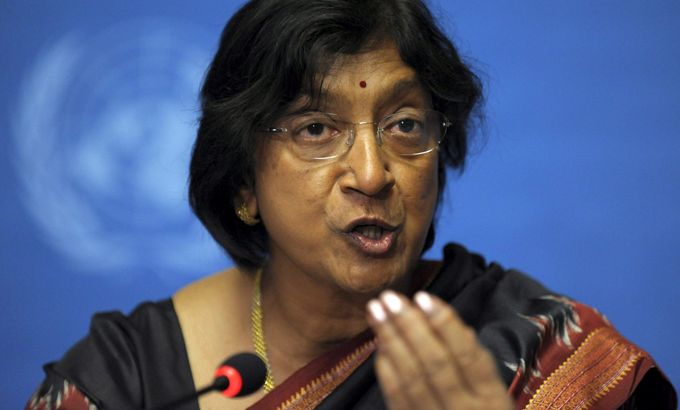
Navi Pillay
The UN’s human rights commissioner explains why she believes arming the Syrian opposition will escalate the violence.
During one of the most difficult recent days in the Syrian city of Homs, when the government assault on the opposition was especially intense, a person in the beleaguered city was quoted by a newspaper asking for someone, anyone, to help. “Where is the United Nations?” he asked.
That voice – and many similar voices – is the concern of Navi Pillay, the United Nation’s high commissioner for human rights. Based in Geneva, her mandate is to protect human rights around the world.
Her role – as a sort of conscience of the international community – often puts her in the crosshairs of politics and morality. It is a role that is familiar to Pillay, who fought against the apartheid regime in her home country, South Africa.
It was her recent speech at the United Nations, in which she called for action against Syria and implored world leaders to hear the cries for help of Syrians, that brought her particular attention.
It is with this topic that her interview with Talk to Al Jazeera begins, as she explains to Al Jazeera’s Sami Zeidan why she does not believe it is a good idea to arm the Syrian opposition.
“Any kind of provision of military equipment to the opposition, in my view, will escalate the violence and not lead to the goal we are trying to achieve,” Pillay explains.
“I think that countries should be focusing their energy on achieving a peaceful resolution here, and to ensure that the root causes are addressed … and supplying arms to a few individuals is not going to help that situation …. As I see it, it’s not the role of outsiders to arm one group or the other.”
Pillay also discusses the human rights situation in Bahrain, Russia and Iran. On the topic of a possible attack on Iran, she says: “My concern is any kind of military strike will have enormous negative impact on the population, on civilians. They will be caught up in the strikes wherever they come from and if they are returned, and I fear that there will be a huge loss of civilian life. That should be the consideration of anyone contemplating a military strike.”